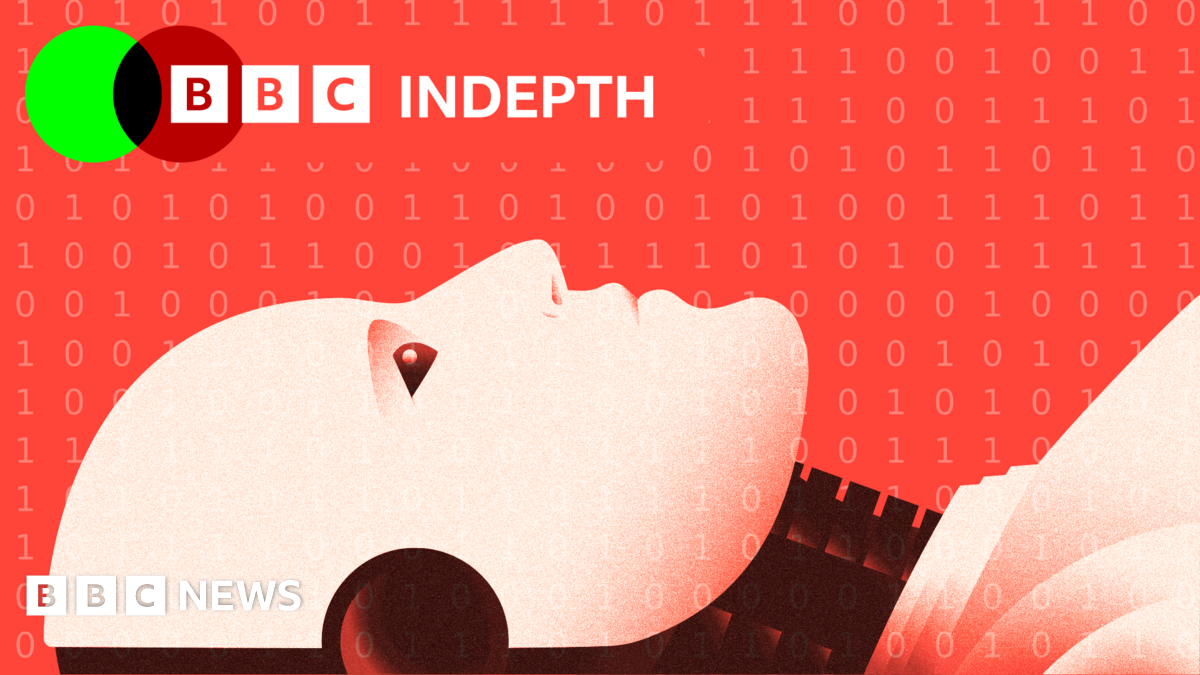AI could already be conscious. Are we ready for it?
-
I said on paper. They are just algorithms. When silicon can emulate meat, it's probably time to reevaluate that.
You talk like you know what the requirements for consciousness are. How do you know? As far as I know that's an unsolved philosophical and scientific problem. We don't even know what consciousness really is in the first place. It could just be an illusion.
-
First, one needs to define consciousness. What I mean by it is the fact that it feels like something to be from a subjective perspective - that there is qualia to experience.
So what I hear you asking is whether it’s conceivable that it could feel like something to be an AI system. Personally, I don’t see why not - unless consciousness is substrate-dependent, meaning there’s something inherently special about biological “wetware,” i.e. brains, that can’t be replicated in silicon. I don’t think that’s the case, since both are made of matter. I highly doubt there’s consciousness in our current systems, but at some point, there very likely will be - though we’ll probably start treating them as conscious beings before they actually become such.
As for the idea of “emulated consciousness,” that doesn’t make much sense to me. Emulated consciousness is real consciousness. It’s kind of like bravery - you can’t fake it. Acting brave despite being scared is bravery.
You're getting downvoted but I absolutely agree. I don't understand why "AI algorithms are just math, therefore they can't have consciousness" seems to be the predominant view even among people interested in the topic. I haven't heard a single convincing argument why "math" is fundamentally different from human brains. Sure, current AI is way less complex and doesn't have a continuous stream of perceptual input. But that's something a "proper" humanoid robot would need to have, and processing power will increase as well.
-
You talk like you know what the requirements for consciousness are. How do you know? As far as I know that's an unsolved philosophical and scientific problem. We don't even know what consciousness really is in the first place. It could just be an illusion.
I have a set of attributes that I associate with consciousness. We can disagree in part, but if your definition is so broad as to include math formulas there isn't even common ground for us to discuss them.
If you want to say contemplation/awareness of self isn't part of it then I guess I'm not very precious about it the way I would be over a human-like perception of self, then fine people can debate what ethical obligations we have to an ant-like consciousness when we can achieve even that, but we aren't there yet. LLMs are nothing but a process of transforming input to output. I think consciousness requires rather more than that or we wind up with erosion being considered a candidate for consciousness.
So I'm not the authority, but if we don't adhere to some reasonable layman's definition it quickly gets into weird wankery that I don't see any value in exploring.
-
I have a set of attributes that I associate with consciousness. We can disagree in part, but if your definition is so broad as to include math formulas there isn't even common ground for us to discuss them.
If you want to say contemplation/awareness of self isn't part of it then I guess I'm not very precious about it the way I would be over a human-like perception of self, then fine people can debate what ethical obligations we have to an ant-like consciousness when we can achieve even that, but we aren't there yet. LLMs are nothing but a process of transforming input to output. I think consciousness requires rather more than that or we wind up with erosion being considered a candidate for consciousness.
So I'm not the authority, but if we don't adhere to some reasonable layman's definition it quickly gets into weird wankery that I don't see any value in exploring.
AI isn't math formulas though. AI is a complex dynamic system reacting to external input. There is no fundamental difference here to a human brain in that regard imo. It's just that the processing isn't happening in biological tissue but in silicon. Is it way less complex than a human? Sure. Is there a fundamental qualitative difference? I don't think so. What's the qualitative difference in your opinion?








